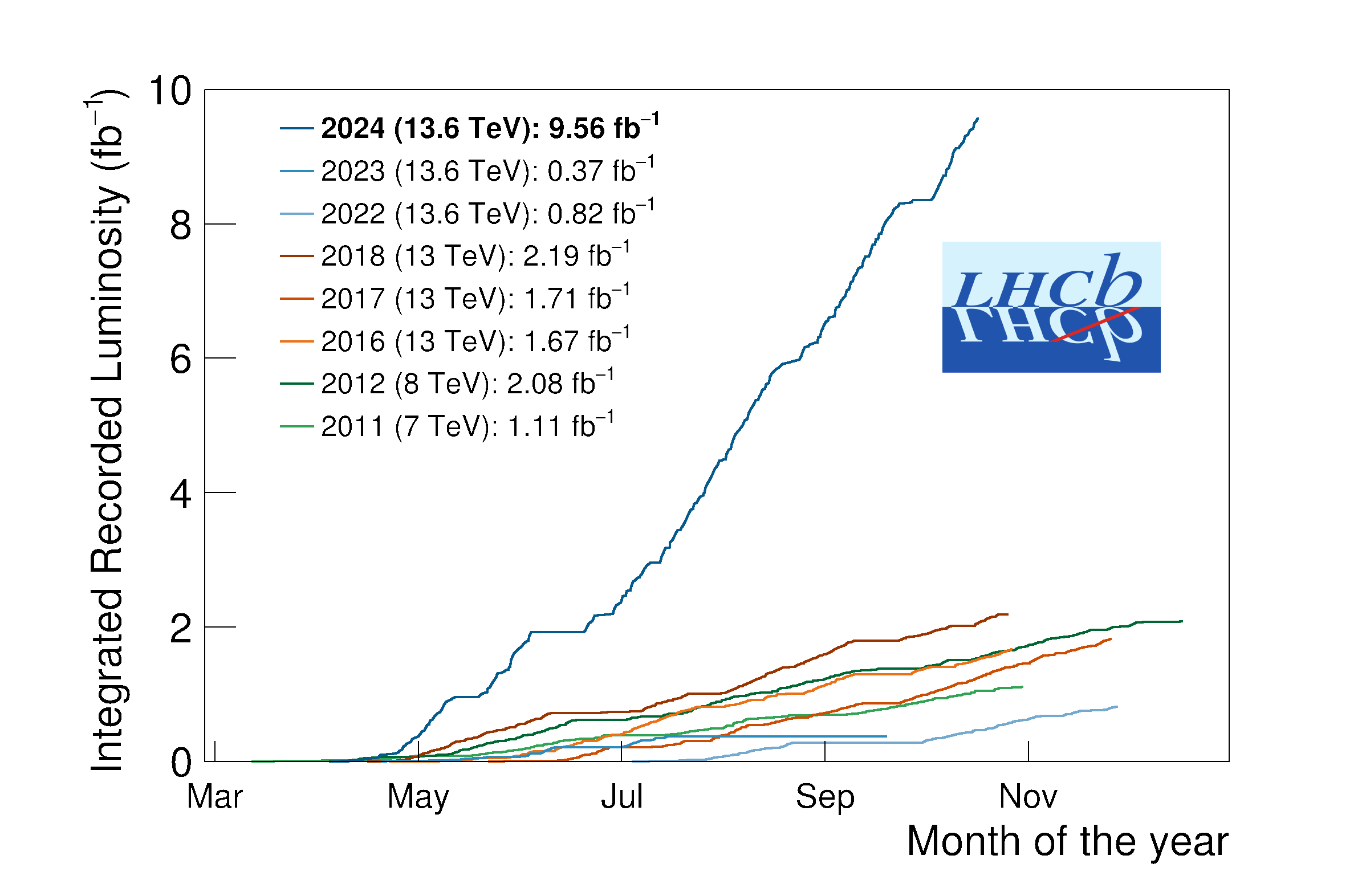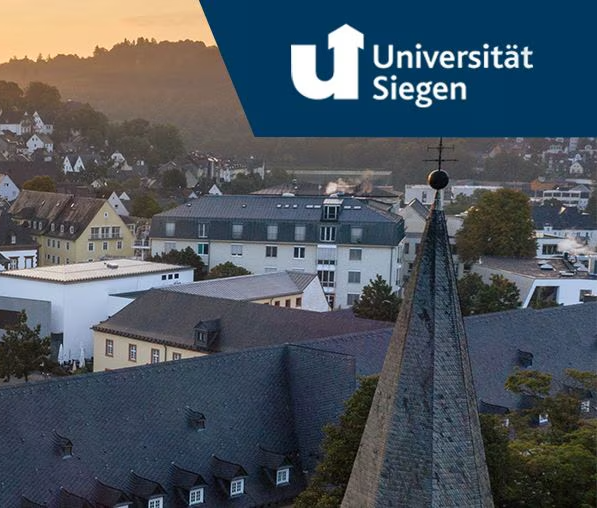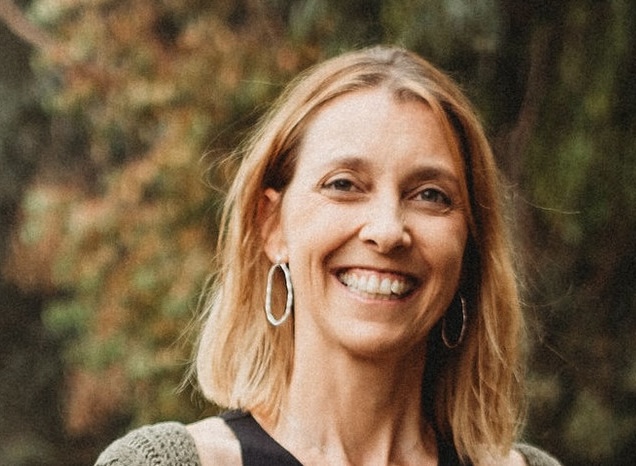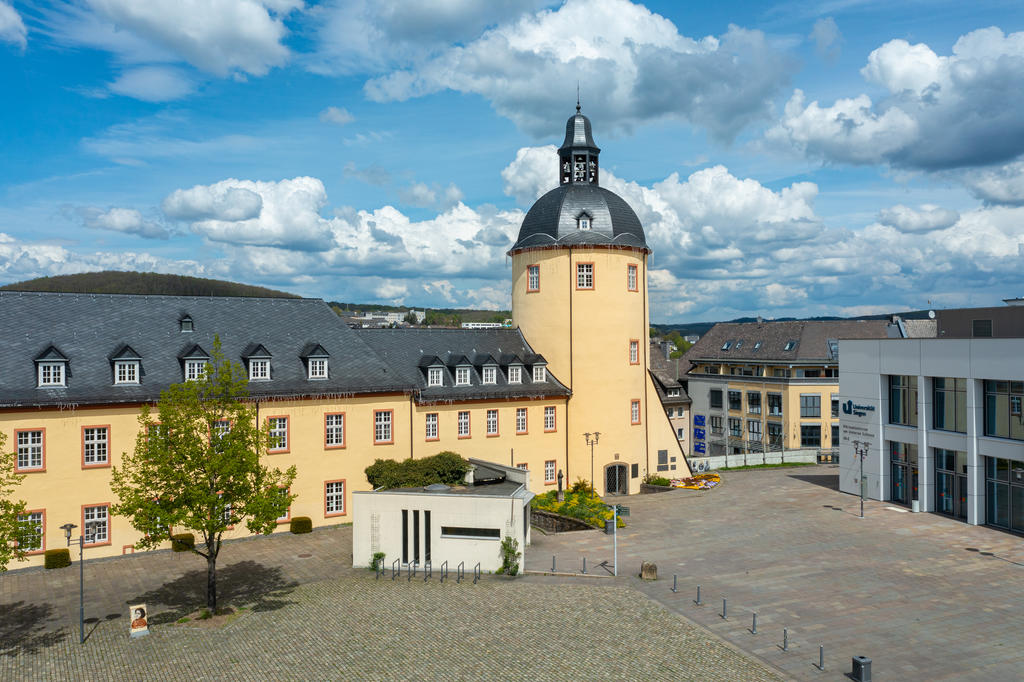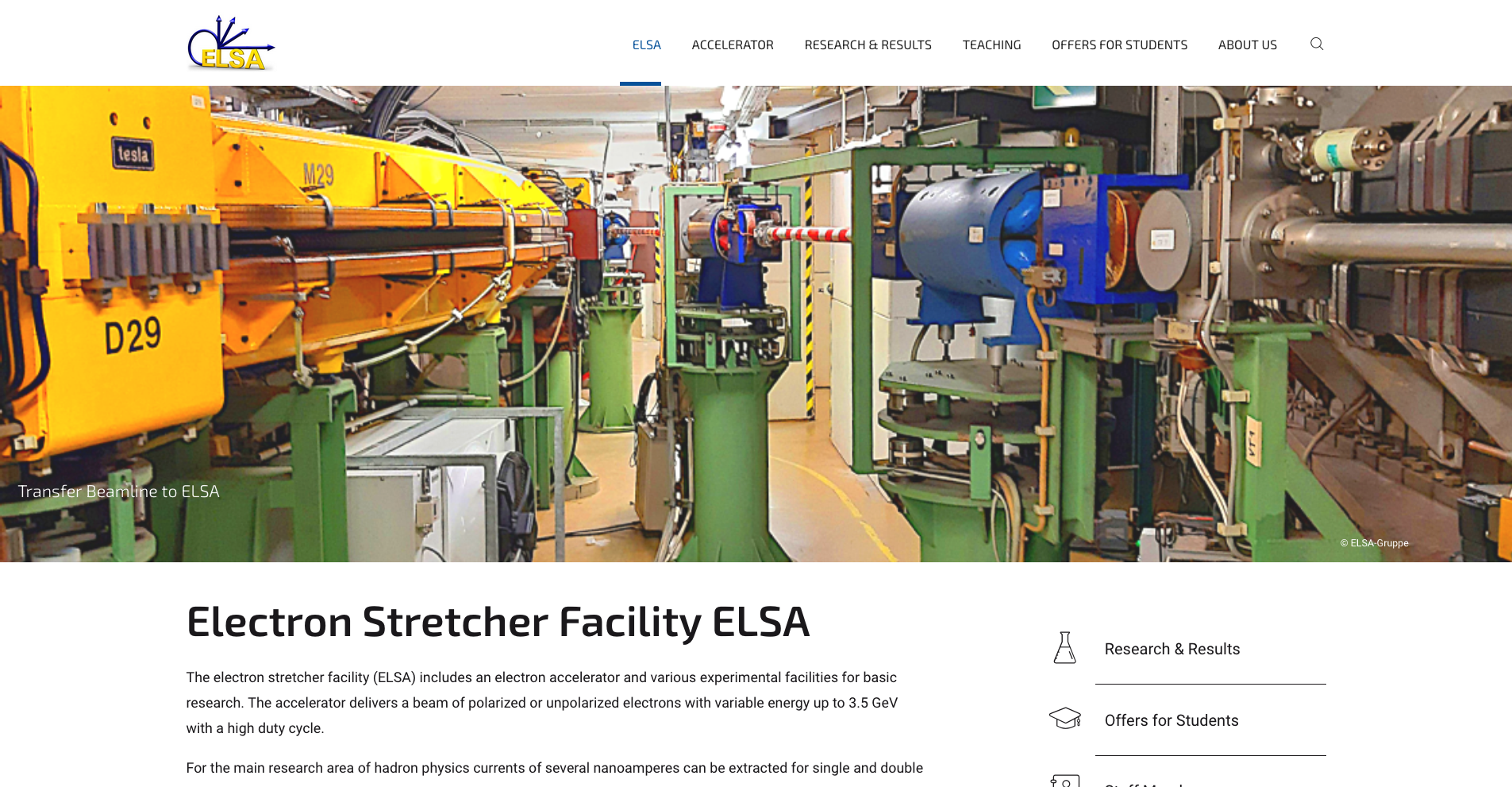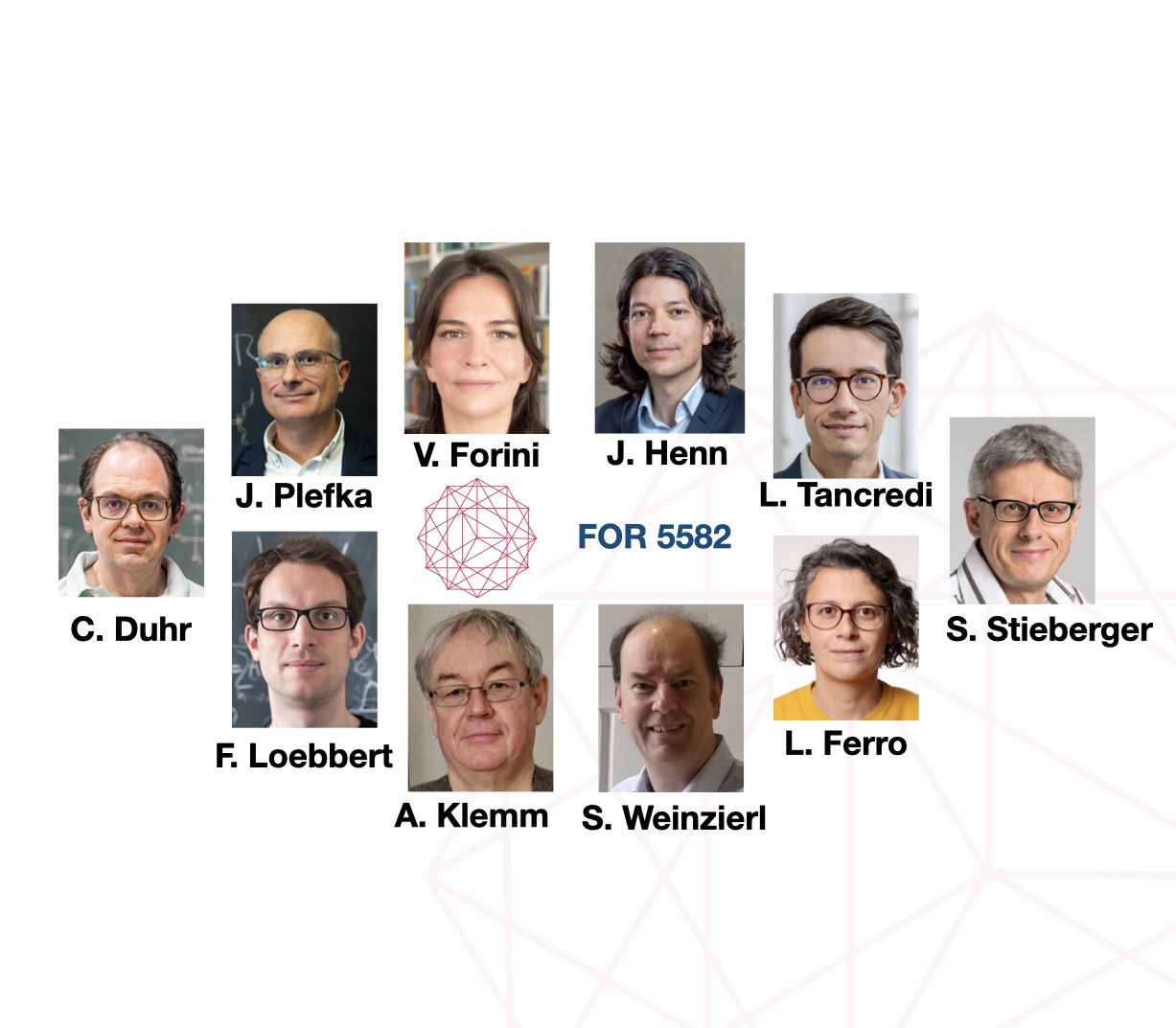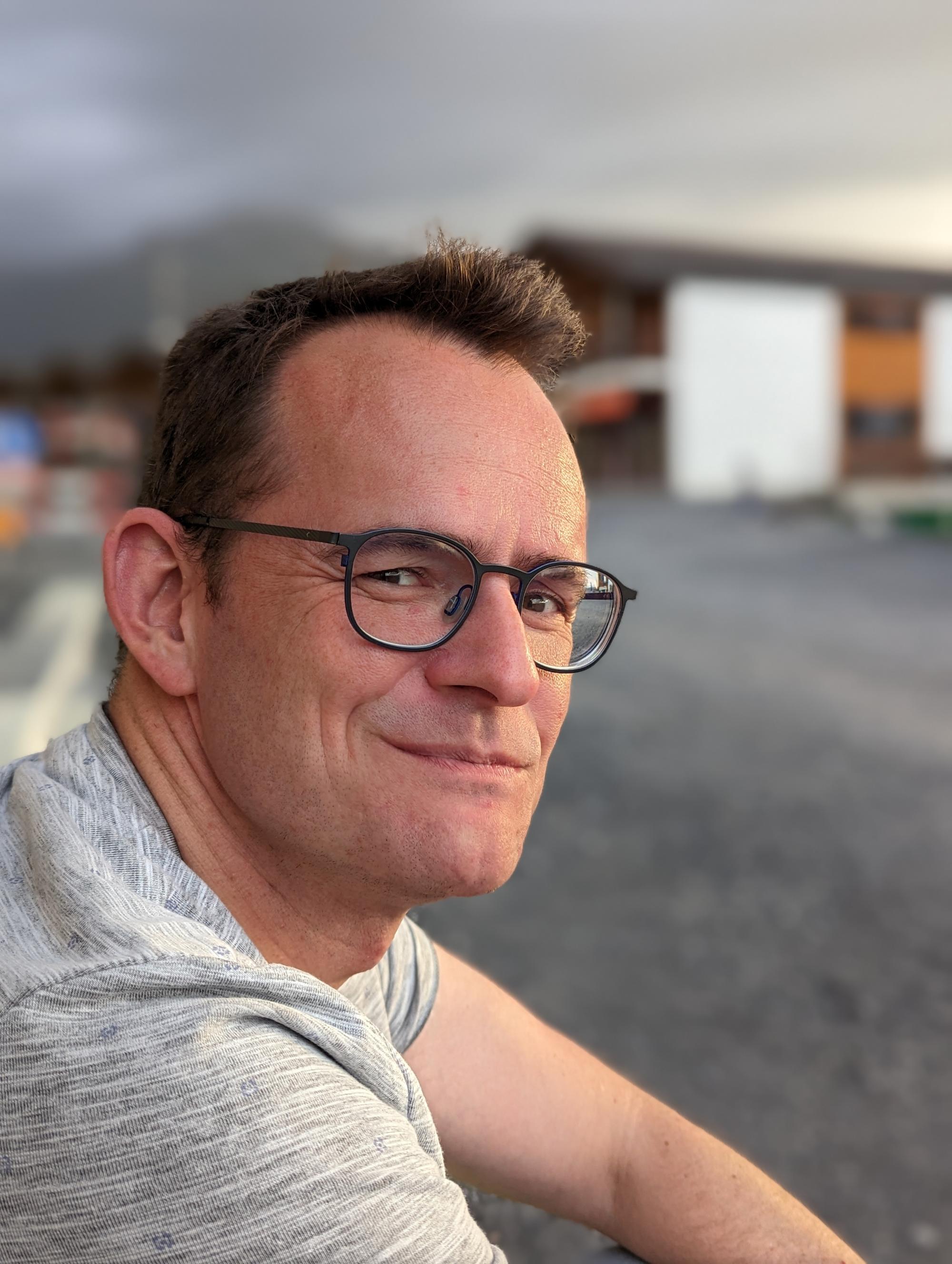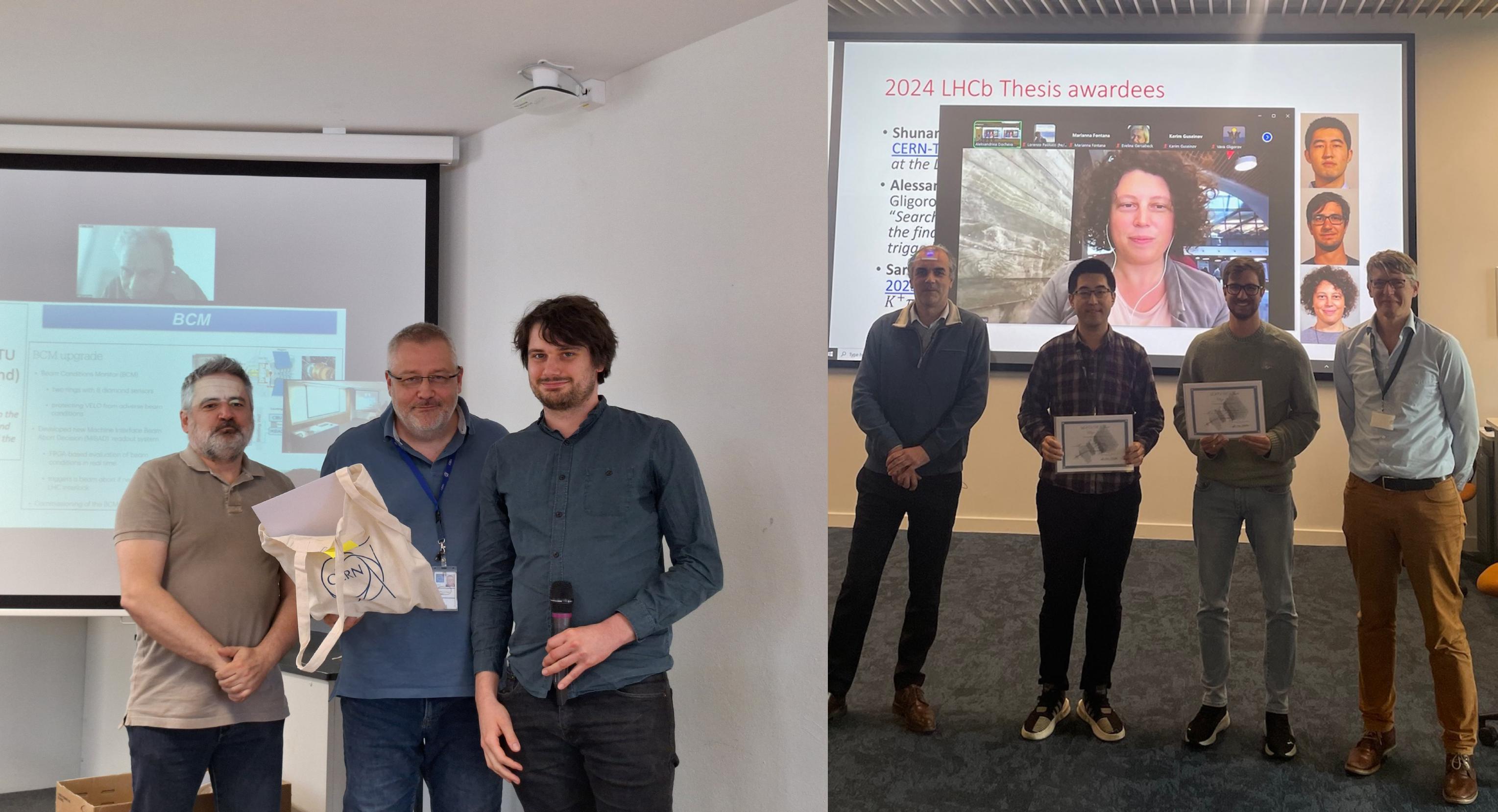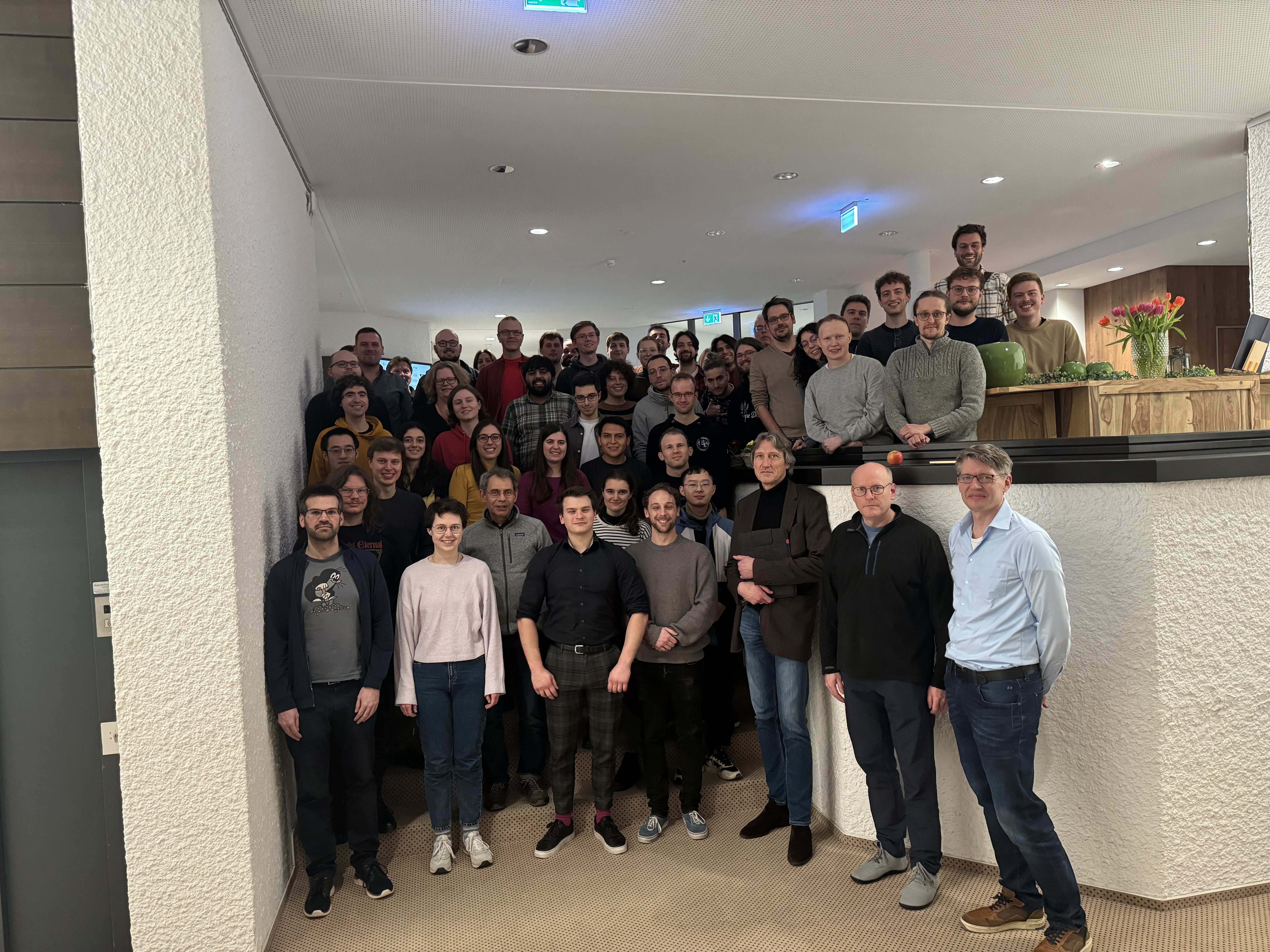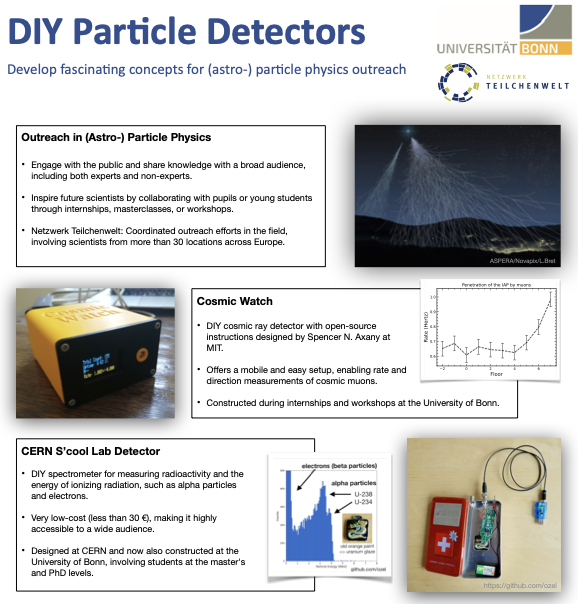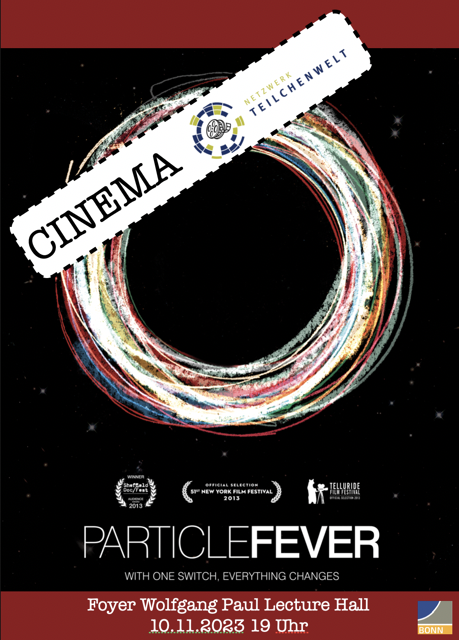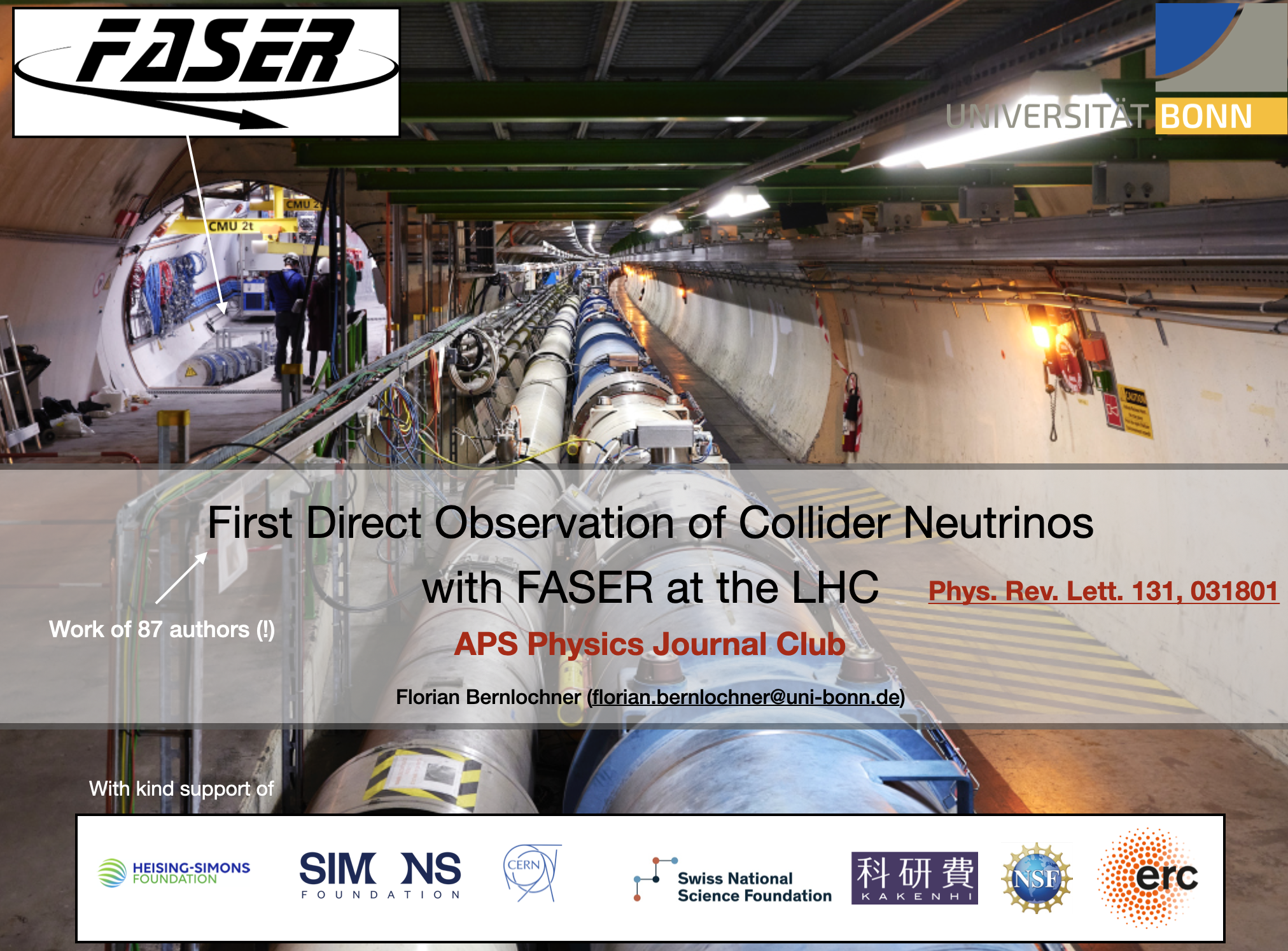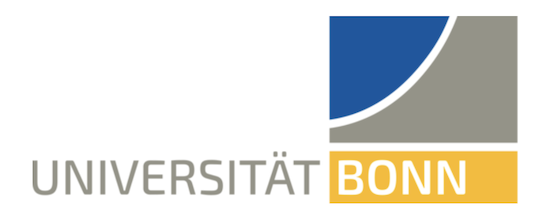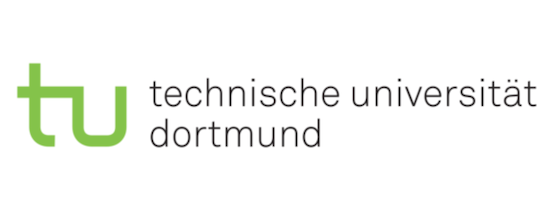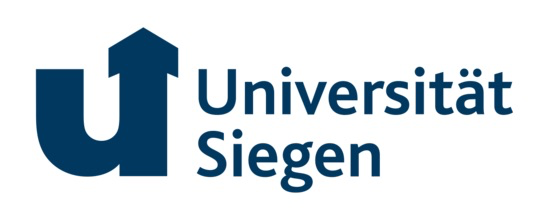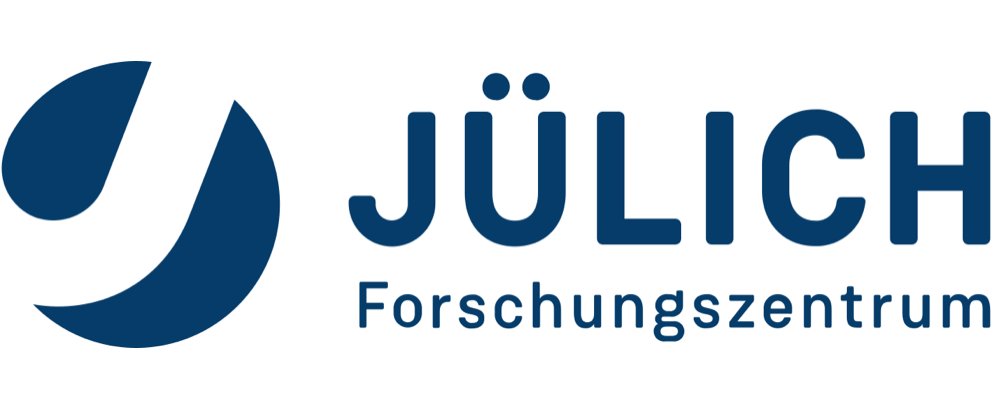Color-meets-Flavor: News
24th Conference on Flavor Physics and CP Violation
May 18-22, 2026
The 24th Conference on Flavor Physics and CP Violation will take place at the headquarter of the of the German Physical Society, the Physikzentrum Bad Honnef, on May 18-22, 2026. Its scientific content is defined by a Local Organizating Committee, where many members of Color meets Flavor are involved.
More information on the workshop can be found on the conference website and the corresponding indico.
More than a lifetime Workshop
September 22-25, 2025
From September 22 to 25, the "More than a lifetime" workshop will take place at the University of Siegen. The workshop focuses on theoretical and experimental aspects of lifetimes of heavy hadrons. The Organising Committee involves many members of Color meets Flavor and hence promises to strongly support the endeavors of the Cluster of Excellence.
More information on the workshop can be found on the corresponding indico page.
Color meets Flavor Constituent Meeting
July 15, 2025
On July 15, 2025, the constituent meeting of the Color meets Flavor Cluster of Excellence will take place at the TU Dortmund University, bringing together physicists and administrators from the University of Bonn, TU Dortmund, University of Siegen, and Forschungszentrum Jülich. The purpose of the meeting is to align strategic priorities, establish governance structures, and coordinate upcoming experimental and theoretical research.
To conclude the meeting, a large BBQ will be held to which all members and associates of the Cluster of Excellence are invited, offering a first opportunity to initiate contact between the working groups of the different institutions.
Color meets Flavor accepted as Cluster of Excellence
May 22, 2025
We are happy to announce that as a result of the meeting of the Excellence Commission on 22 May 2025, Color meets Flavor has officially been accepted as one of the 70 Clusters of Excellence. This marks a major milestone in our collaborative efforts to explore the interplay between the strong and weak interaction in a close collaboration between theory and experiment.
We look forward to keeping you up to date on this website!
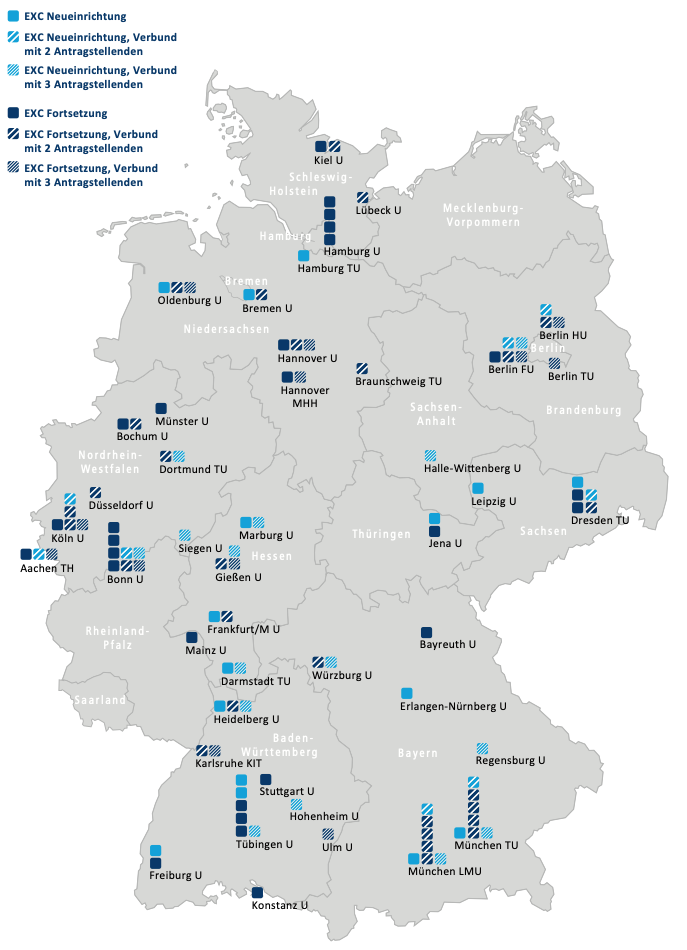 Photo credits: DFG Excellence Strategy
Photo credits: DFG Excellence Strategy
ATLAS observes top quarks in lead-lead collisions
November 12, 2024
Scientists at CERN's ATLAS experiment have achieved the first detection of top quarks in lead-lead collisions with involvement of members of Prof. Dr. Matthias Schott's research group at the University of Bonn. This significant milestone enhances the study of the quark-gluon plasma (QGP), a high-energy state of matter from the early universe. Due to their short lifetime, top quarks serve as precise probes for exploring the QGP's dynamics and properties. The observations, confirmed with strong statistical evidence, pave the way for advancing our understanding of fundamental strong force interactions and early cosmic conditions.
More information can be found in the articles published by the University of Bonn here and CERN here.
The PANDA forward endcap calorimeter arrived in Bonn to be used as forward calorimeter of the new INSIGHT-experiment at ELSA
After many years of R&D and in close collaboration with groups from other universities, the Bonn group has started to build-up the forward endcap calorimeter (FWEC) of the PANDA-experiment at the research center Jülich in 2023. After at first very successful test beam time at the COSY accellerator with a partly equipped detector system - 20% of the almost 3856 PbWO4-crystals were installed - at its design temperature of -25°C, the detector system was transported to Bonn. At the FTD, the forward endcap will be equipped with all its crystals, closing also its inner hole before it will then be installed at ELSA to be used as forward calorimeter in the new INSIGHT-experiment.
On August 20th, 2024 the detector arrived at the FTD, using heavy load transportation since the detector already now weigths about 4 tons. After it was slowly and carefully moved into the assembly hall, the detector is now ready for further installation of the remaining detector modules.
Lohengrin white paper published on arXiv
The LOHENGRIN study group has published a preprint of their white paper: 2410.10956. The document outlines design studies and optimizations for a missing-momentum and missing-mass based search for the dark sector. It represents a path for a future experiment at ELSA, making use of unique properties of the ELSA beam.
The R&D path for Lohengrin includes design challenges especially in the area of ultra-fast, ultra-thin trackers, their readout and fast track trigger infrastructure, whose development can be ideally supported by the Intelligent Hardware Lab of CmF. Hadronic backgrounds for dark photons in this type of experiment need to be understood at an unprecedented level, connecting the experiment directly to the CmF Research Area 1.
Beyond the detector R&D and the backgrounds, the physics of the dark sector itself is connected to the CmF Research Area 4 and represents a path towards hints for the unification of forces, the most far-reaching connection between color and flavour.
End of LHCb 2024 proton-proton collision data taking period
October 16, 2024
On October 16th, 2024, this year's LHC proton run ended, surpassing expectations with 11% more collisions than planned. At LHCb, an integrated luminosity of 9.56 fb-1 was recorded this year, which is higher than the sum of integrated luminosities from Run 1 and Run 2. LHCb operated at a record instantaneous luminosity of 2x1033cm-2s-1, corresponding to μ=5.3, the average number of visible pp collisions per bunch crossing.
More details on the 2024 proton-proton collision data taking period of LHCb can be found in the article published by the experiment.
Newly elected German Committee of Elementary Particle Physics
At the beginning of October, the German Committee of Elementary Particle Physics (KET) was re-elected. Among those elected are Prof. Dr. Johannes Albrecht and Prof. Dr. Gudrun Hiller from the TU Dortmund University.
To find out more about the KET, please refer to their official website.
Applications open for new professorship at the University of Siegen
October 4, 2024
At the university of Siegen, applications are now open for a new professorship for computational theoretical physics. This position is expected to contribute to the deepening of the collaboration with the Universtiy of Bonn, the TU Dortmund University and the Research Center Jülich besides representing the subject of computational physics in research and teaching and contributing to the SFB TRR 257 "Particle Physics Phenomenology after the Higgs Discovery".
More information can be found here.
New professorship at TU Dortmund University
October 1, 2024
Since October 1st Prof. Dr. Julia Vogel works in the area of axion physics and the development of X-ray instruments at the department of physics of the TU Dortmund University. You can find more information on her research interests in the article published by the TU Dortmund University.
3rd edition of the "Lattice meets Continuum" workshop
September 30 - October 3, 2024
From September 30 to October 3, 2024, the 3rd edition of the "Lattice meets Continuum" workshop is taking place in the seminar center of the University of Siegen. The workshop aims to further the progress in flavor physics phenomology by fostering the exchange between the Lattice and the Continuum communities. Topics for the 3rd edition of the workshop include semileptonic and rare decays, meson mixing and lifetimes, and Gradient Flow, among others, that are covered by international experts. In addition, a social program is offered in the form of multiple dinners and an excursion to a nearby stalactite cave, the Attahöhle, with a cheese tasting afterwards.
The school was supported by the local organising committee with members from Bonn, Dortmund, Jülich and Siegen. Further information can be found here.
New ELSA website
September 17, 2024
The Electron Stretcher Facility in Bonn (ELSA) has launched a new web-presence: ELSA website
55th Autumn School on High-Energy Physics
September 3-13, 2024
As part of a long-standing series, the 55th autumn school on high-energy physics (formerly known as Maria Laach) took place in the physics center Bad Honnef. From September 3-13, 2024, the participating doctoral students attended various lectures in experiment and theory on Standard Model precision physics, the Higgs mechanism, electroweak processes, and QCD. Topics such as Dark Matter and Quantum Computing were also covered.
In addition, all participants were able to present their respective research topic in a short talk and receive feedback, as well as take part in exercises on theoretical physics. In the evening, there were further lectures on general and physics topics.
The school was organised by Prof. Dr. Markus Klute (KIT), Prof. Dr. Stefan Dittmaier (University of Freiburg), and Prof. Dr. Alexander Lenz (University of Siegen). Further information can be found in the correpsonding indico.
Record luminosity recorded at LHCb
September 11, 2024
As reported at the LHCC Open Session in September, LHCb has recorded data with a corresponding integrated luminosity of more than 7.24 fb-1 in 2024. This is more than the total luminosity in the data taking phase between 2015 and 2018 and demonstrates the excellent performance of the LHC and the LHCb detector after Upgrade I. The enormous amount of b- and c-quark mesons recorded will help to deepen and extend the LHCb physics program in the coming years.
New Research Unit on mathematical physics in Bonn
July 08, 2024
The DFG will be funding a new Research Unit - Modern Fundamentals of Scattering Amplitudes - in the field of mathematical physics at the University of Bonn over the next four years.
The new Research Unit, whose speaker is Professor Claude Duhr, intends to study various aspects of scattering amplitudes, which link the theory with the experiment within scattering processes. In this way it aspires to discover new fundamental principles of mathematics and physics and develop new methods for calculating them. This will allow for more precise calculations to be made of scattering processes in particle accelerators as well as gravitational waves, which are produced when massive astronomical objects merge.
Further information can be found in this article by the University of Bonn and the corresponding press release by the DFG.
Florian Bernlochner elected as new Belle II spokesperson
July 03, 2024
The Belle II collaboration has elected Florian Bernlochner, Professor at the Physikalisches Institut of University of Bonn, as its next spokesperson.
The Belle II experiment is located at the SuperKEKB accelerator in Japan. It is a key player in the hunt for new particle physics phenomena and precision measurements of B mesons and charm hadrons. Starting in the summer of 2025, Prof. Dr. Bernlochner will coordinate the scientific and technical activities of the collaboration. During his term as spokesperson, Belle II aims to collect data at unprecedented collision rates and will prepare for a detector upgrade.
More information about the Belle II experiment can be found in this article by the University of Bonn.
Open day at Research and Technology Center for Detector Physics and accelerator ELSA, Bonn
June 29, 2024
A special open day took place on 29 June 2024 at the Research and Technology Center for Detector Physics (FTD) and the accelerator ELSA at the University of Bonn. Visitors could enjoy lectures, lab tours, workshops to build their own particle detectors, and more. A special highlight during the open day were guided tours of the ELSA accelerator, which is also used to test new technologies developed for the use in particle detectors, for example at CERN in Geneva and KEK in Japan.
A detailed look into the event can be found in this video published by the University of Bonn.
LHCb awards two members of Albrecht working group, Dortmund
June 3 - June 7, 2024
This year's external LHCb week took place in Glasgow from June 3 to 7. In this context an award ceremony was held where special contributions to the collaboration were honored. Two of these awards went to employees of the Albrecht working group in Dortmund.
The LHCb Technical Award went to Martin Bieker for his fundamental contribution to the development and commissioning of the Beam Conditions Monitor of the LHCb detector.
Furthermore, Dr. Alessandro Scarabotto was awarded the LHCb Thesis Award, among others.
During his doctorate, he worked on a search for rare four-body decays of charm hadrons with electrons in the final state,
and made a significant contribution to the software development and commissioning of the LHCb upgrade detector.
More information can be found in the articles of the Albrecht working group and CERN.
Second CharmInDor mini workshop on rare charm decays and CPV, Dortmund
April 23 - April 24, 2024
Scientific organizers: Prof. Gudrun Hiller & Dr. Dominik Mitzel (TU Dortmund)
Get ready for the second instance of our in-house mini workshop in Dortmund on rare charm decays and CPV from 23 Apr - 24 Apr 2024. As last year, the idea is to have an informal meeting between the experts of the Color-Meets-Flavor institutes Bonn, Jülich, Dortmund and Siegen and invited friends with plenty of time for discussions to understand where we are and identify future projects. This year we'll also look a bit at the more distant future and opportunities beyond the LHC.
More information can be found here.
First Color Meets Flavor PhD School
March 18 - March 22, 2024
The first Color Meets Flavor PhD school took place in Bad Honnef. About 70 international students, as well as 15 lecturers, supervisors and the organizers Prof. Johannes Albrecht (TU Dortmund), Prof. Florian Bernlochner (Universität Bonn) and Prof. Alexander Lenz (Universität Siegen) participated. The program contained lectures held by Alexey Petrov, Maxwell Hansen, Gino Isidori, Marie-Helen Schune and Miguel Escudero, together with two evening talks by Zoltan Ligeti (Berkeley) und Guy Wilkinson (Oxford). Furthermore, a poster session was held by the students. Another part of the school was an excursion to the nearby radio telescope and a hands-on session regarding building your own detector, which was very much enjoyed especially by theoretical physicist.
The support from the physics center was very good and pleasant - we should probably repeat that.
More information about the program and the contributions can be found here.
NRW Minister of Science and Culture Ina Brandes visits ELSA electron accelerator
March 06, 2024
The Minister of Science and Culture in North Rhine-Westphalia visited the electron accelerator ELSA, which is situated at the Campus Poppelsdorf of the University of Bonn. For the visit she was greeted by the president of the University of Bonn, Rektor Prof. Dr. Dr. h.c. Michael Hoch, and the dean of the faculty of mathematics and natural sciences, Prof. Dr. Walter Witke. In addition, the presidents of the TU Dortmund University and the University of Siegen, Prof. Dr. Manfred Bayer and Prof. Dr. Stefanie Reese, joined the visit.
A more detailed article by the University of Bonn is available here.
Color-Meets-Flavor Bad Honnef Physics School - Bonn, Dortmund, Siegen
March 17 - 22, 2024
Scientific organizers: Prof. Johannes Albrecht (TU Dortmund), Prof. Florian Bernlochner (Universität Bonn), Prof. Alexander Lenz (Universität Siegen)
Physikzentrum Bad Honnef, Germany
Quark flavor physics studies the transitions of quarks via the weak interaction. Since quarks carry a color charge they do not exist as free particles, but are bound into colorless hadrons. Thus for a clear identification of the fundamental quark transitions a control of the hadronic effects is indispensable - color meets flavor.
Review lectures will provide a broad overview over current highlights of the field, accompanied by hands-on sessions on detector development and deep learning based data analysis as well as inspiring evening lectures.
Link for more descriptionFlavor Physics Workshop Meinerzhagen - Bonn, Dortmund, Siegen
February 7 - 9, 2024
Scientific organizers: Dr. Dominik Mitzel (TU Dortmund)
Meinerzhagen, Germany
From 7-9 February 2024, a flavor physics workshop was held in Meinerzhagen for doctoral and master's students from Aachen, Bochum, Bonn, Dortmund, Karlsruhe, and Siegen. The workshop comprised lectures on various topics in theoretical and experimental flavor physics. The program was completed with contributions on hadronic and medical physics.
AgendaMINT-EC Camp in Bonn
November 8 - 10, 2023
From 8-10 November 2023, participants will be offered an exciting and varied programme at the Physics Institute of the University of Bonn: The focus will be on building their own small particle detector. The programme also includes lectures on particle physics, a cloud chamber workshop and laboratory visits to the Research and Technology Centre for Detector Physics at the University of Bonn. There will be plenty of opportunities to ask all kinds of questions and learn more about the physics of the smallest particles and the construction of detectors that detect and measure the particles.
Flyer Link for more description and registrationWoche der Teilchenwelt: Film presentation Particle Fever and expert panel in Bonn
November 10, 2023
On November 10, the captivating film "Particle Fever" will be screened in the Wolfgang Paul Lecture Hall - an absolute must for all science enthusiasts! The film highlights the exciting world of particle physics and takes viewers on a thrilling journey into the heart of the Large Hadron Collider (LHC) at CERN. Experience the groundbreaking discoveries and fascinating stories of the researchers. After the screening, a panel of experts will be on hand to discuss and answer your questions. This is your opportunity to dive deep into the world of particle physics and learn more about the latest developments in the field.
FlyerWoche der Teilchenwelt: Film presentation Particle Fever and get together in Siegen
November 9, 2023
From November 6 to 12 2023, Siegen becomes a hub for enthusiasts of particle physics. Join us in exploring the wonders of the particle world during this special week. Below is the schedule for the exciting activities on November 9 2023:
- 16:45 - Particle Physics Exhibition at the University of Siegen
- 18:00 - Film Screening “Particle Fever” - Documentary on the discovery of the Higgs boson
- 20:00 - Conclusion of the event with Siegerländer specialties
LHCb’s Outer Tracker Relocated to GSI for New Research Ventures
October 5, 2023
The LHCb detector's Outer Tracker (OT), a significant portion of which was constructed by the Dortmund working group, has been transported to the GSI in Darmstadt, Germany. After being replaced by the Scintillating Fibre (SciFi) sub-detector at LHCb, the OT journeyed through France and reached GSI on August 25. It's now set to play a key role in the PANDA detector at the FAIR accelerator facility, furthering research into the enigmatic strong force. The OT's intricate modular design will continue advancing particle research at its new home.
News ArticleFirst Direct Observation of Collider Neutrinos with the FASER Experiment - PRL Journal Club. Bonn
September 26, 2023
Neutrinos are among the most abundant particles in the Universe, but they rarely interact with matter: trillions pass through us every second, but most of us will never have even a single one interact with the matter in our bodies. Nonetheless, scientists can study these particles using high-intensity neutrino sources and detectors that are large enough to overcome the rarity of neutrino interactions. In this way, neutrinos have been observed from the Sun, from cosmic-ray interactions in the atmosphere, from Earth’s interior, from supernovae and other astrophysical objects, and from artificial sources such as nuclear reactors and particle accelerators in which a beam of particles hits a fixed target. But no one had ever detected neutrinos produced in colliding beams. This feat has now been achieved by the Forward Search Experiment (FASER), located at the Large Hadron Collider (LHC) at CERN in Switzerland. Florian Bernlochner (University of Bonn) and colleagues sat down with the Physical Review Journal Club to discuss the team's exciting results, which were recently published in Physical Review Letters and summarized in Physics Magazine. Bernlochner and colleagues provided a short presentation of their experiment and observations, followed by a live question-and-answer session moderated by David Saltzberg, UCLA.
Flyer Youtube Video Journal Article Bonn News ArticleNew World Record: Thinnest Ever Pixel Detector Installed in Belle II (3. August 2023). Bonn
August 3, 2023
The Belle II cooperation project at the Japanese research center KEK is helping researchers from all over the world to hunt for new phenomena in particle physics. The international experiment has now reached a major milestone after a team successfully installed a new pixel detector in its final location in Japan. The size of a soda can, the detector was developed in order to make out the signals coming from certain types of particle decays, that can shed light on the origin of the matter-antimatter asymmetry that has been observed in the universe. The installation ran without a hitch and is a key milestone in the evolution of the experiment and German-Japanese research collaboration.
Bonn News ArticlePrecise measurement of the unitarity triangle angle β
June 13, 2023
Led by the Dortmund working group, the LHCb collaboration unveiled a pivotal discovery at CERN today. Analyzing the full breadth of Run 2 data, they achieved unmatched precision in measuring the sin2β observable, crucial for determining the angle β of the 'unitarity triangle'.
The initial measurements of sin2β by the BaBar and Belle experiments were instrumental in the awarding of the 2008 Nobel Prize in Physics. Today's announcement, detailing LHCb researchers' value of S/sin2β=0.716±0.013±0.008, stands as the most accurate measurement of the unitarity angle β thus far, marking a significant stride in particle physics.
News ArticleLHCb Exhibition Opens at CERN
March 3, 2023
On March 3, 2023, CERN unveiled a captivating LHCb exhibition at a special event attended by LHCb collaborators and the CERN Education, Communications, and Outreach team. Located in the surface experimental hall, the exhibition gives visitors an intimate look at the LHCb experiment, with features like an immersive audio-visual experience replicating the layout of LHCb, display of upgraded detector parts, and an interactive touch screen detailing particle physics fundamentals and LHCb collaboration. Developed in partnership with the design firm Indissoluble, this new attraction will be a major stop for the CERN visit service network, and upcoming tours will further benefit from the new Science Gateway launching this autumn.
LHCb News Article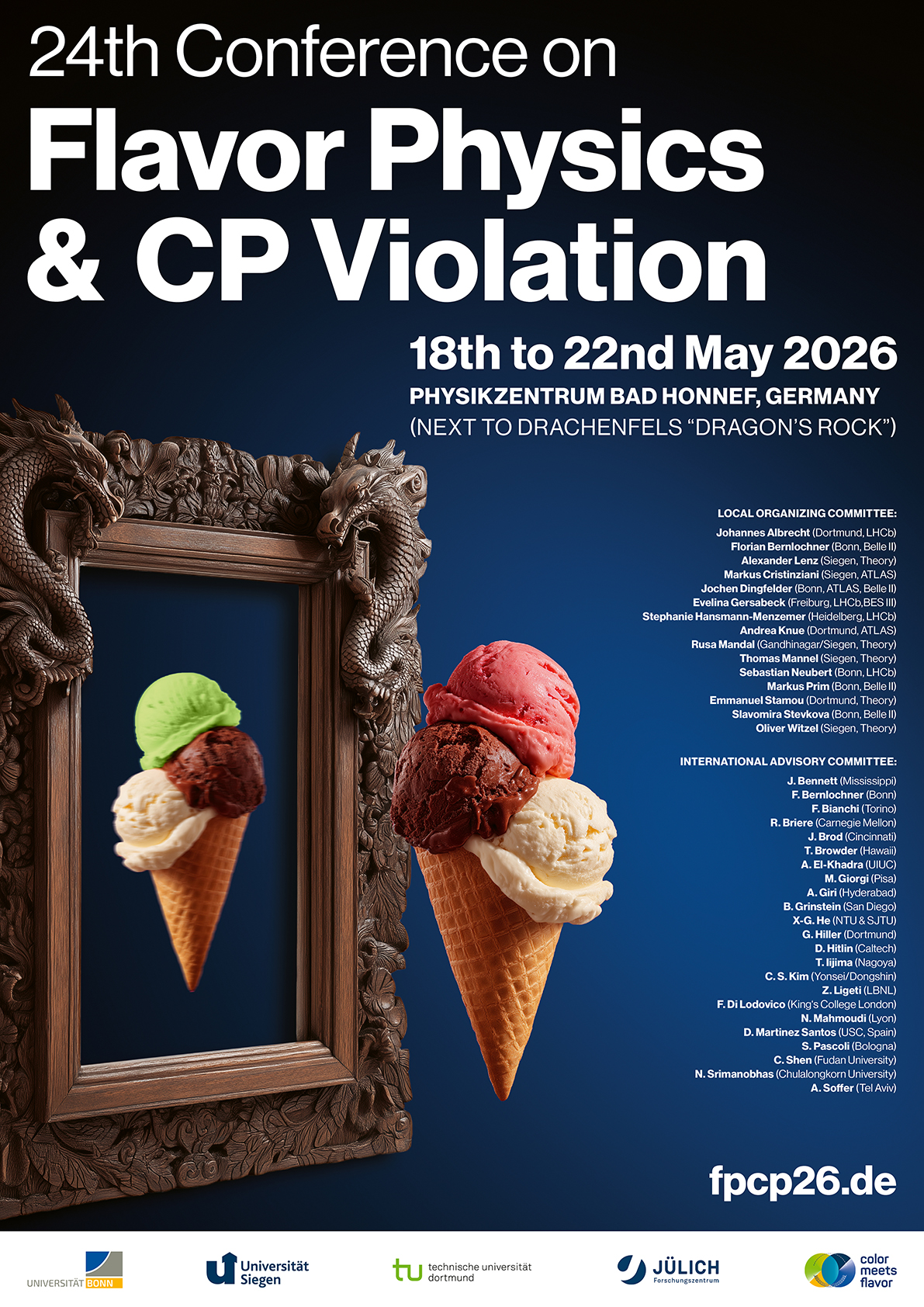
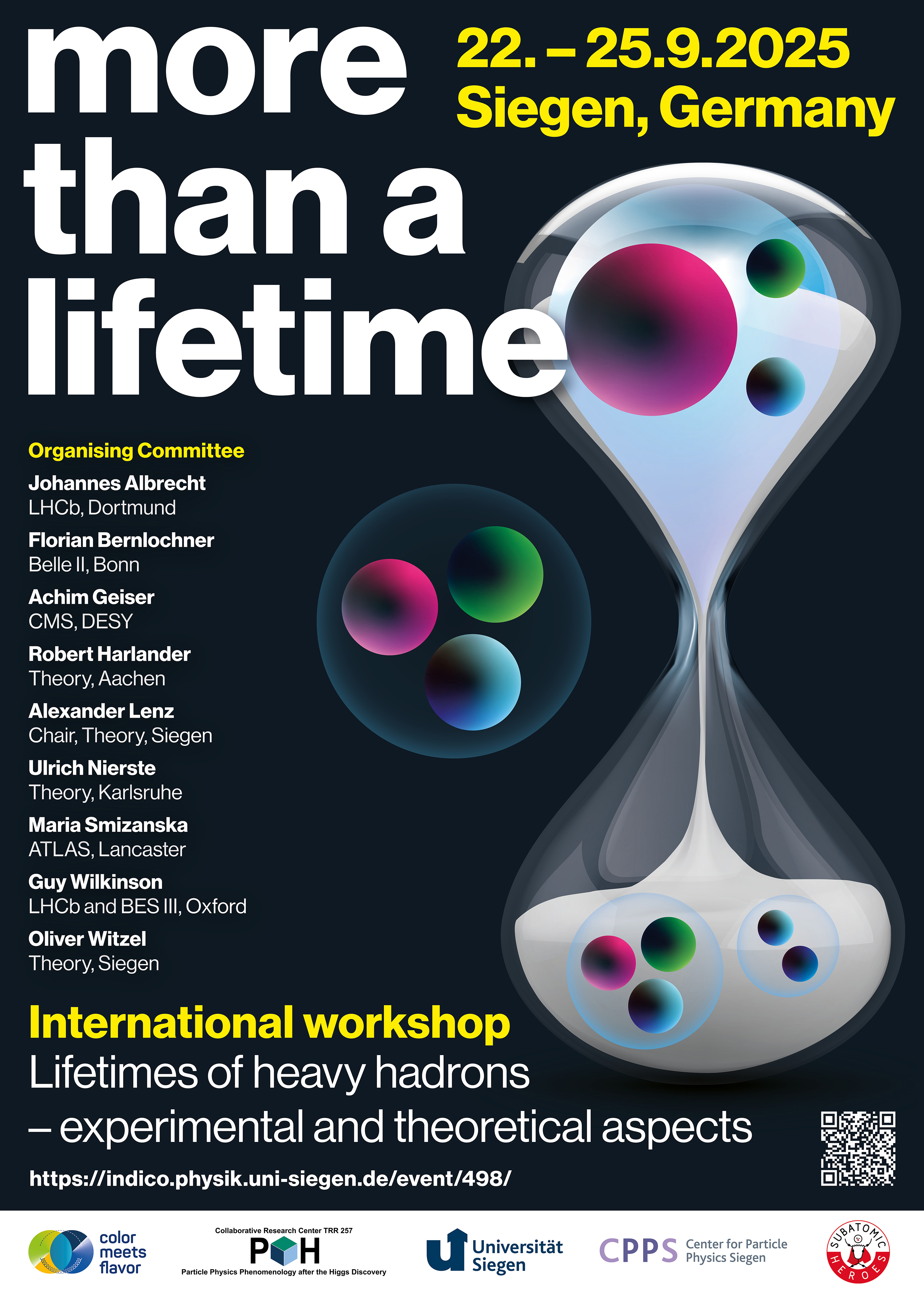


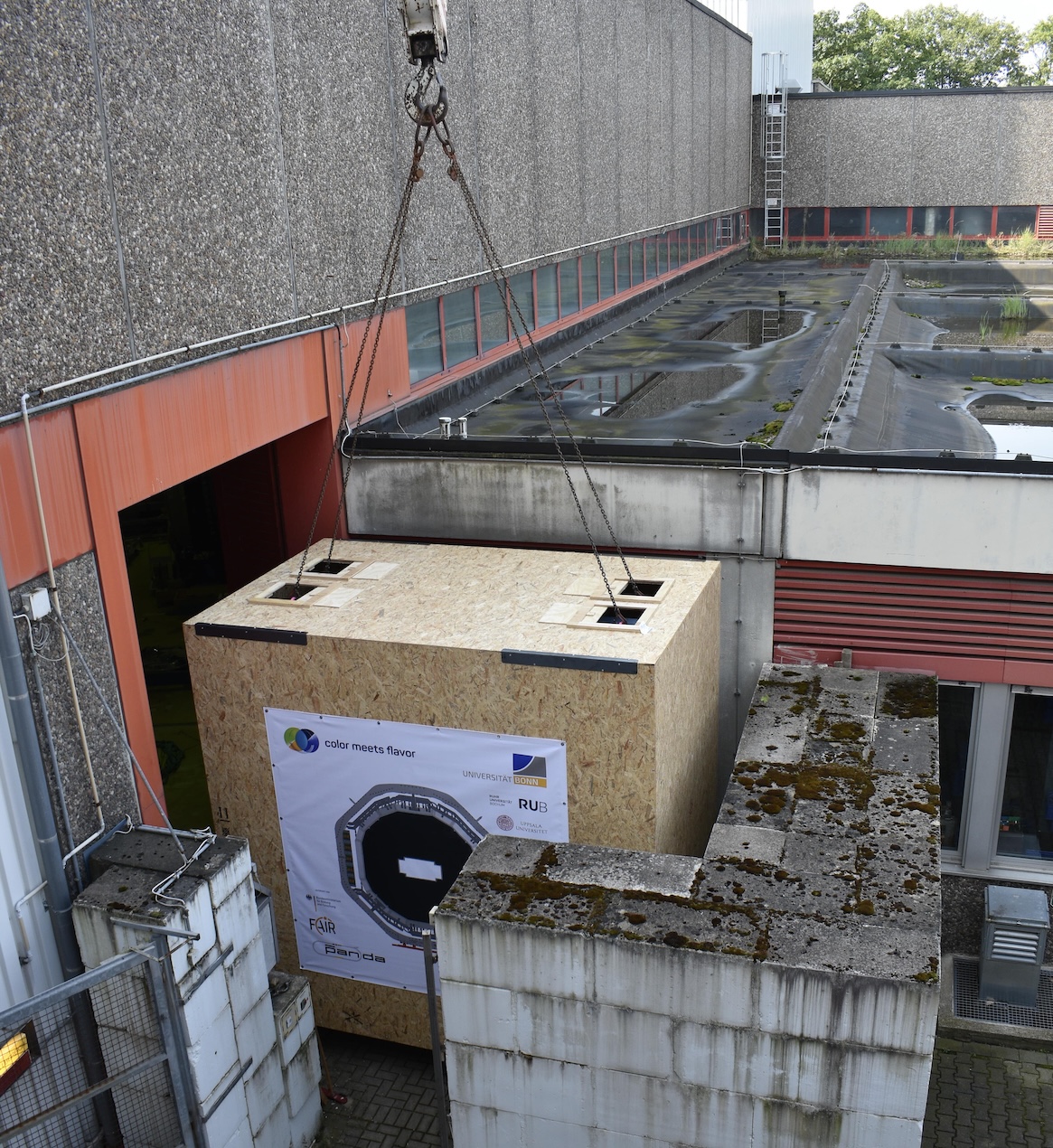 Photo credits: Ulrike Thoma/University of Bonn
Photo credits: Ulrike Thoma/University of Bonn
 Photo credits: Nils Stausberg/University of Bonn
Photo credits: Nils Stausberg/University of Bonn
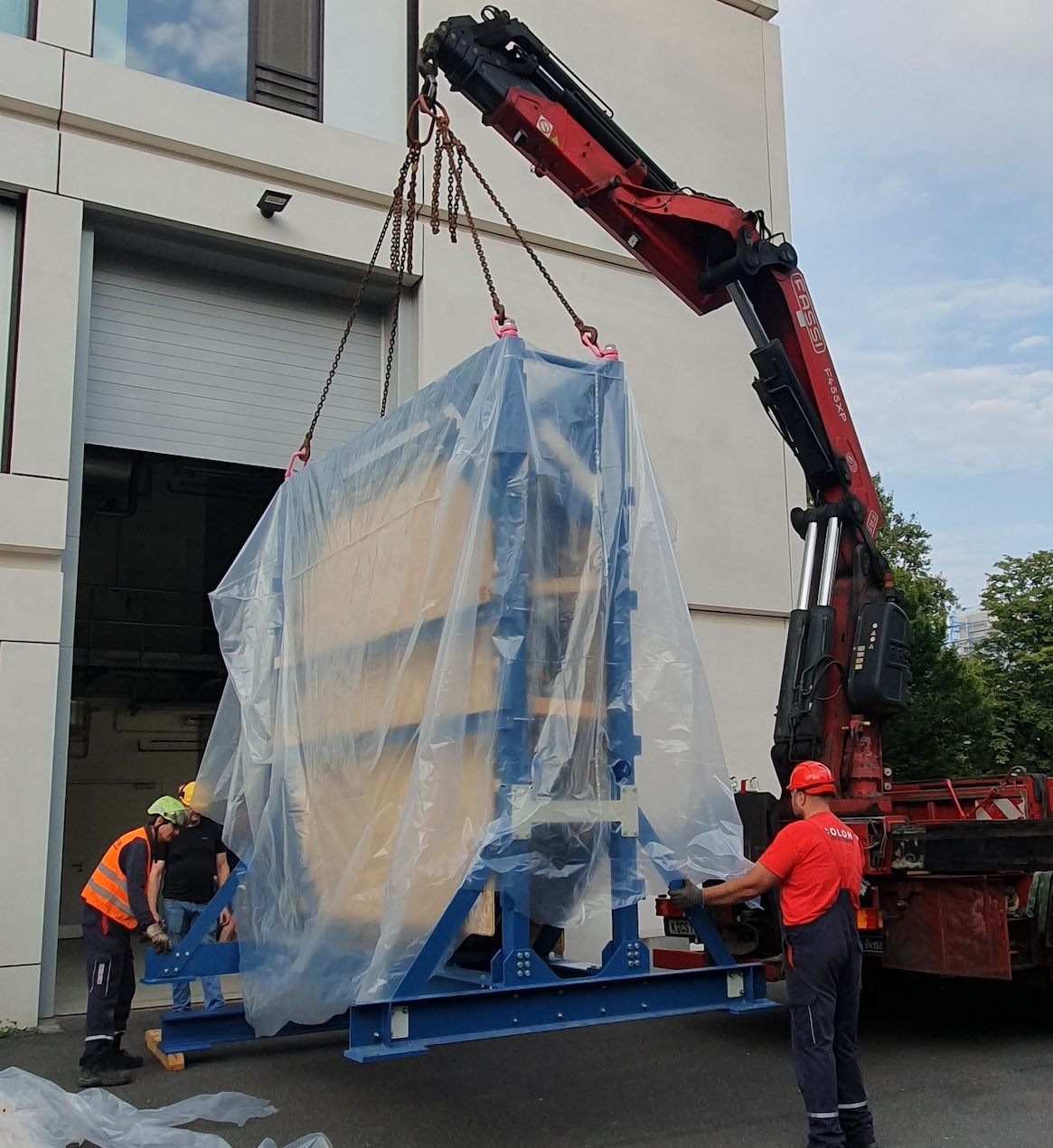 Photo credits: Nils Stausberg/University of Bonn
Photo credits: Nils Stausberg/University of Bonn
 Photo credits: Ulrike Thoma/University of Bonn
Photo credits: Ulrike Thoma/University of Bonn
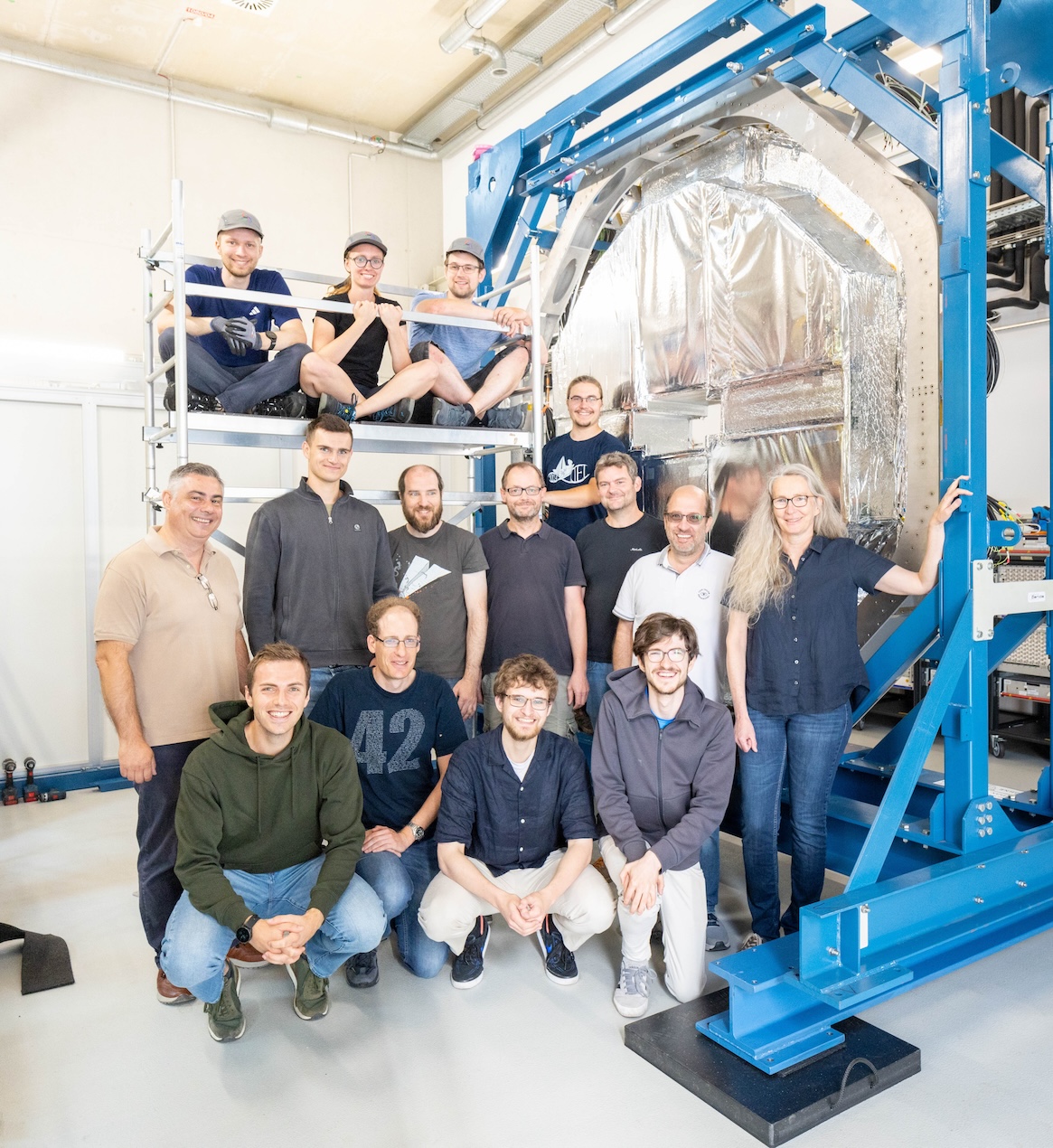 Photo credits: Volker Lannert/University of Bonn
Photo credits: Volker Lannert/University of Bonn
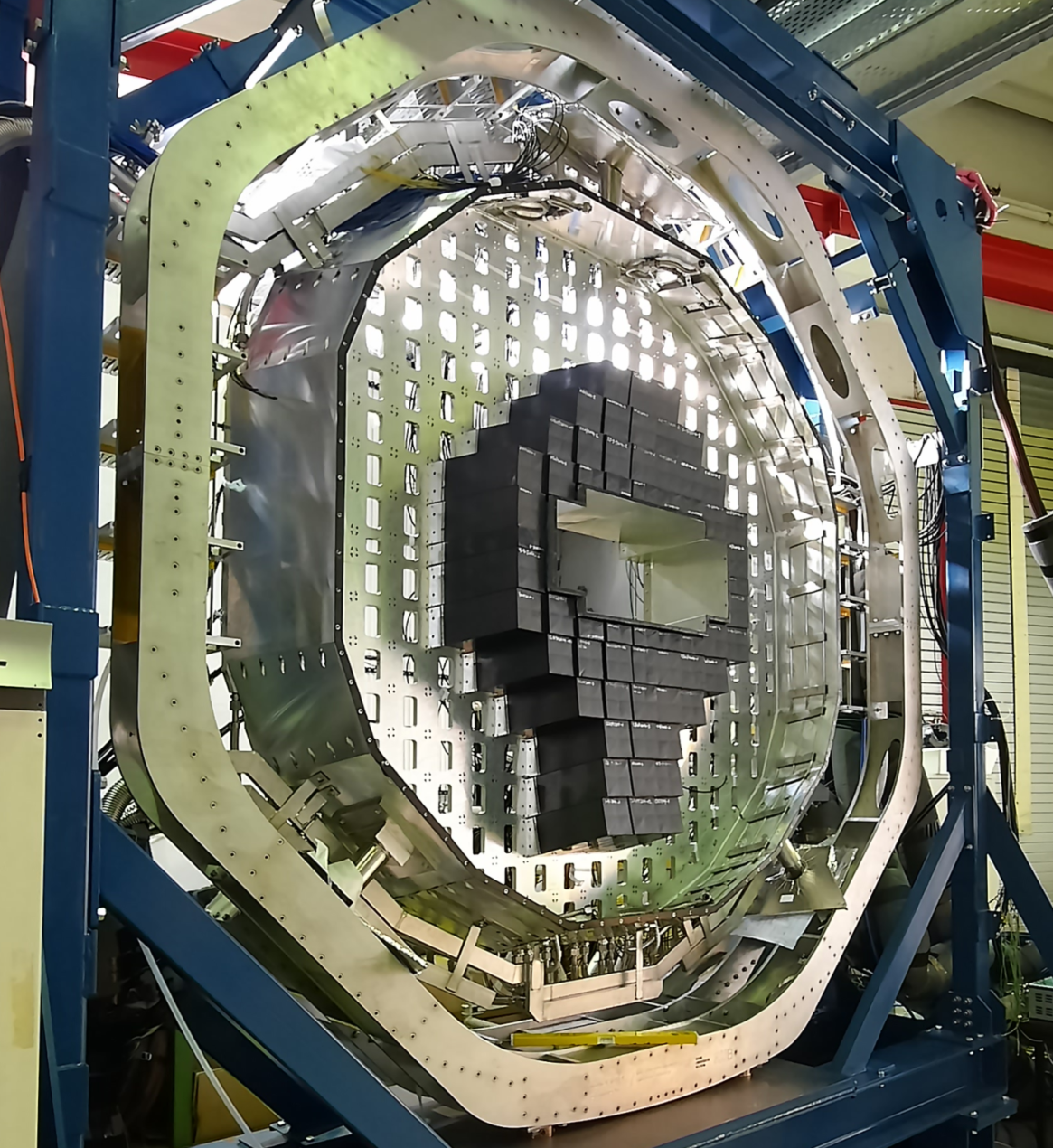 Photo credits: Jonas Kohlen/University of Bonn
Photo credits: Jonas Kohlen/University of Bonn

